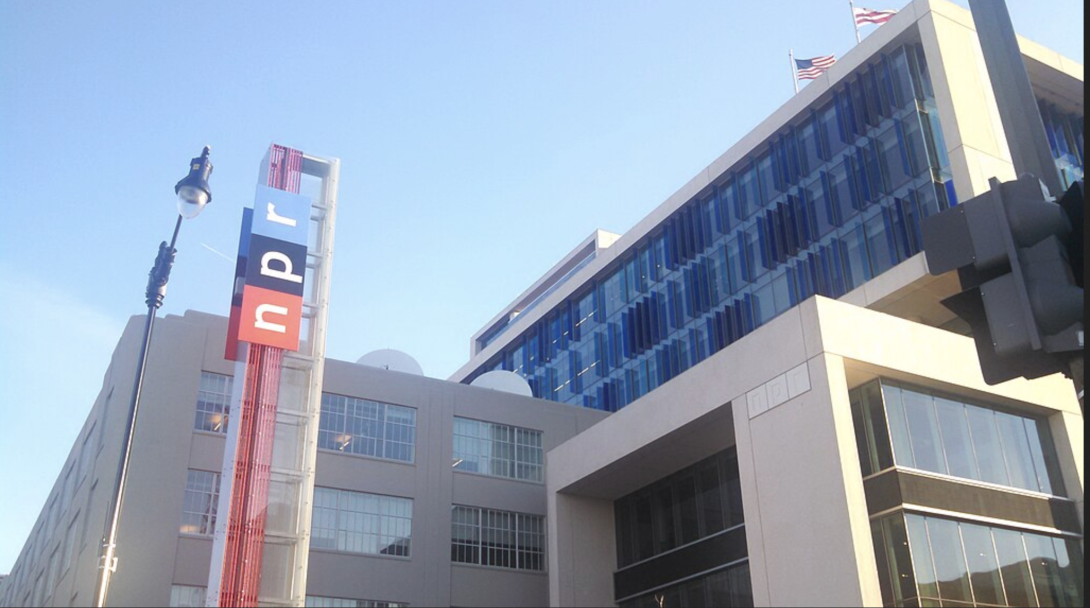Free Press Action's Craig Aaron Tells House Subcommittee Investigating NPR to Support a 'Renewed and Vibrant Public Media'

Image via Wikimedia Commons user Cornellrockey04
WASHINGTON — On Wednesday, Free Press Action President and Co-CEO Craig Aaron testified before a House Energy and Commerce subcommittee seeking evidence of political bias at NPR. The committee’s Oversight and Investigations Subcommittee convened the hearing to “investigate[s] how federal dollars are being used at NPR and what reforms may be necessary,” according to the hearing memo.
Aaron’s full written testimony is available here. What follows is his testimony as delivered to the subcommittee:
Regarding “Examining Accusations of Ideological Bias at NPR, a Taxpayer Funded News Entity”
Good morning. My name is Craig Aaron. I’m president and co-CEO of Free Press and Free Press Action. Thank you Chairman Griffith, Ranking Member Castor, Chairwoman McMorris Rodgers and Ranking Member Pallone for inviting me to testify.
I do not represent NPR, PBS or the Corporation for Public Broadcasting. Instead, I hope to provide a voice today for NPR’s tens of millions of weekly listeners, who rely on the service for fact-checked journalism, local viewpoints and international coverage.
Given the impetus for this hearing, I also must clarify that Free Press is a nonprofit group started in 2003 to advocate on media policy and should not be confused with “The Free Press,” a Substack publication that recently published a critical article about NPR.
Over the past 20 years, I have been both an advocate for and a critic of the public-broadcasting system — which I believe can do more to live up to its mandate and mission.
But this won’t be accomplished by tarnishing the reputation of NPR’s accomplished journalists, tearing down the institution or starving it of funds.
Inquiries like today’s will likely make NPR leadership more timid, and I imagine that’s the point.
But threats of defunding don’t just harm NPR executives — they endanger the work of more than 1,000 local radio stations providing essential information to communities large and small.
While I always welcome Congress’ interest in public media, especially given the crisis in local journalism, I’m perplexed that an essay by one disgruntled editor at NPR is cause for a congressional inquiry.
That essay by Uri Berliner is riddled with fuzzy math and cherry-picked evidence. For example, he inaccurately describes several stories as going uncovered, when NPR did extensive reporting or publicly interrogated its own editorial decision-making about them.
That said, public media’s purpose should be to tell stories not already told by commercial media and serve audiences not represented elsewhere.
Berliner laments NPR’s increased focus on racial diversity since 2020. If in 2024 you’re still questioning whether systemic racism exists, you should probably spend more time listening to the experiences of your colleagues from different backgrounds.
Berliner’s supposed bombshell that D.C. residents in NPR’s newsroom are all registered Democrats — in a city where just 5% of voters are registered as Republicans — doesn’t withstand scrutiny either. As NPR journalist Steve Inskeep points out, NPR has 662 people in its newsrooms around the world, including far more in D.C. than the 87 Berliner tallied. His numbers don’t add up.
Yet these rickety claims have sent this subcommittee down a precarious path. I’m deeply concerned about the request sent to NPR CEO Katherine Maher, asking her to track and report to Congress on the political affiliations of NPR’s newsroom employees.
This dangerous overreach raises serious First Amendment concerns and smacks of a political loyalty test.
While Congress has a role in overseeing the operations and financial management of NPR, threats to defund it based on a perceived failure to cover certain topics or hire certain people strike at the heart of journalistic freedom.
Yes, there also must be a firewall between NPR executives and the newsroom. NPR’s new CEO may have once volunteered for a Biden campaign. The head of the CPB used to co-chair the RNC. Neither is, nor should be, involved in editorial decisions.
Berliner insists he doesn’t want NPR defunded, but his complaints have been seized upon by those who seek to defang or destroy public media. This is just the latest chapter in a long history of attacking NPR personnel on trumped-up charges of bias.
Instead, we have an opportunity today to talk about how to rebuild and expand the public-media system to meet the real needs of local communities.
We can find common ground. Mr. Husock and I, for instance, agree that NPR should not be defunded, but we should be spending more resources in support of local journalism to replant news deserts.
Common ground can exist in Congress, too. I imagine many members here remember a time when there were multiple local outlets covering your campaigns and accomplishments — actually telling people back home what you do in Washington.
A renewed and vibrant public-media system focused on local voices is possible. But it requires a different approach, one that builds on public media’s founding purpose, quoting President Johnson, to use the public airwaves, “which belong to all the people … for the enlightenment of all the people.”
Thank you. I welcome your questions.